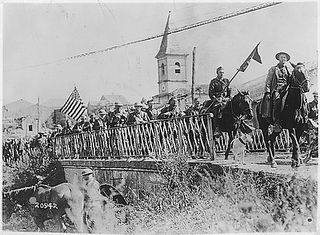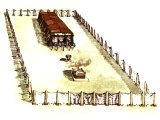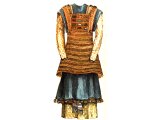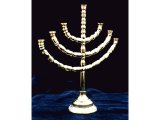Mark opens his gospel about Jesus with an introduction of John the Baptist and a portion of Isaiah 40. When an NT author uses a text from the OT, the purpose is not to merely quote the few verses recorded, but rather to refer to the context out of which that OT verse comes.
What kind of Jesus is Mark going to introduce to us?
Isaiah the prophet wrote these words to console the people of Judah and Israel following their brutal defeat and painful exile. After their punishment by God, they were offered these words of restoration.
Jesus has come to offer Judah and Israel reconciliation to God their Creator and King.
Read this poem and gain a richer understanding of Jesus - and then take this view with you as you read through Mark.
(I know this written artwork is lengthy - odds are you need to slow down and savor and soak in these words of beauty, your soul likely needs it)
(My poet-friend Jeremie Solak used that argument one time...)
Isaiah 40 (TNIV - copy and pasted from Biblegateway.com)
1 Comfort, comfort my people,
says your God.
2 Speak tenderly to Jerusalem,
and proclaim to her
that her hard service has been completed,
that her sin has been paid for,
that she has received from the LORD's hand
double for all her sins.
3 A voice of one calling:
"In the wilderness prepare
the way for the LORD;
make straight in the desert
a highway for our God.
4 Every valley shall be raised up,
every mountain and hill made low;
the rough ground shall become level,
the rugged places a plain.
5 And the glory of the LORD will be revealed,
and all people will see it together.
For the mouth of the LORD has spoken."
6 A voice says, "Cry out."
And I said, "What shall I cry?"
"All people are like grass,
and all human faithfulness is like the flowers of the field.
7 The grass withers and the flowers fall,
because the breath of the LORD blows on them.
Surely the people are grass.
8 The grass withers and the flowers fall,
but the word of our God endures forever."
9 You who bring good news to Zion,
go up on a high mountain.
You who bring good news to Jerusalem,
lift up your voice with a shout,
lift it up, do not be afraid;
say to the towns of Judah,
"Here is your God!"
10 See, the Sovereign LORD comes with power,
and his arm rules for him.
See, his reward is with him,
and his recompense accompanies him.
11 He tends his flock like a shepherd:
He gathers the lambs in his arms
and carries them close to his heart;
he gently leads those that have young.
12 Who has measured the waters in the hollow of his hand,
or with the breadth of his hand marked off the heavens?
Who has held the dust of the earth in a basket,
or weighed the mountains on the scales
and the hills in a balance?
13 Who can fathom the Spirit of the LORD,
or instruct the LORD as his counselor?
14 Whom did the LORD consult to enlighten him,
and who taught him the right way?
Who was it that taught him knowledge,
or showed him the path of understanding?
15 Surely the nations are like a drop in a bucket;
they are regarded as dust on the scales;
he weighs the islands as though they were fine dust.
16 Lebanon is not sufficient for altar fires,
nor its animals enough for burnt offerings.
17 Before him all the nations are as nothing;
they are regarded by him as worthless
and less than nothing.
18 With whom, then, will you compare God?
To what image will you liken him?
19 As for an idol, a metal worker casts it,
and a goldsmith overlays it with gold
and fashions silver chains for it.
20 People too poor to present such an offering
select wood that will not rot.
They look for a skilled worker
to set up an idol that will not topple.
21 Do you not know?
Have you not heard?
Has it not been told you from the beginning?
Have you not understood since the earth was founded?
22 He sits enthroned above the circle of the earth,
and its people are like grasshoppers.
He stretches out the heavens like a canopy,
and spreads them out like a tent to live in.
23 He brings princes to naught
and reduces the rulers of this world to nothing.
24 No sooner are they planted,
no sooner are they sown,
no sooner do they take root in the ground,
than he blows on them and they wither,
and a whirlwind sweeps them away like chaff.
25 "To whom will you compare me?
Or who is my equal?" says the Holy One.
26 Lift up your eyes and look to the heavens:
Who created all these?
He who brings out the starry host one by one,
and calls them each by name.
Because of his great power and mighty strength,
not one of them is missing.
27 Why do you complain, Jacob?
Why do you say, Israel,
"My way is hidden from the LORD;
my cause is disregarded by my God"?
28 Do you not know?
Have you not heard?
The LORD is the everlasting God,
the Creator of the ends of the earth.
He will not grow tired or weary,
and his understanding no one can fathom.
29 He gives strength to the weary
and increases the power of the weak.
30 Even youths grow tired and weary,
and young men stumble and fall;
31 but those who hope in the LORD
will renew their strength.
They will soar on wings like eagles;
they will run and not grow weary,
they will walk and not be faint.


.jpg)














































